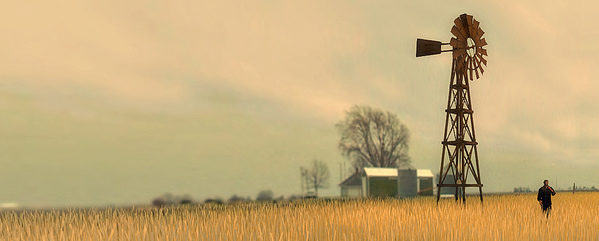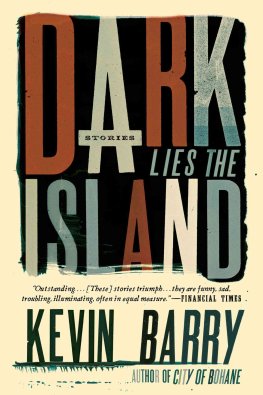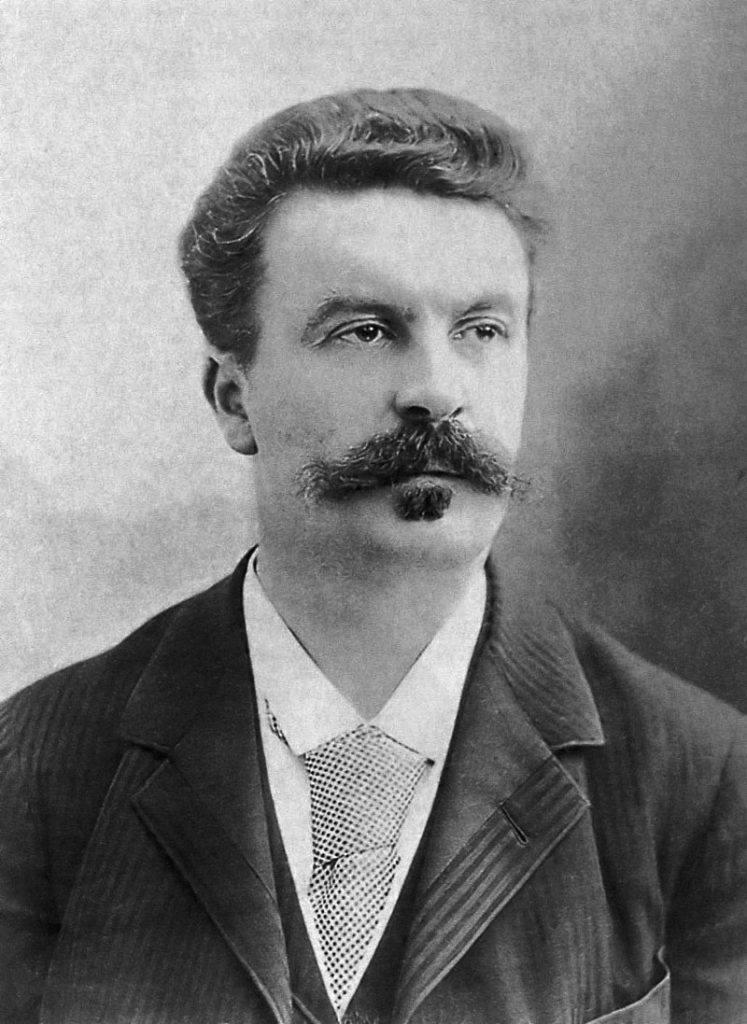
('Wide Horizons' © Tizzy Canucci, 2013)
A FRANCO-IRISH HISTORY OF CRUELTY
by ARMEL DAGORN
Picture this: a man steps out, and maybe it’s a good day, and the stars, or traffic lights, align, and all the simple pleasures of a sweet summer morn are revealed to the purposeful flaneur.
Enter the hellish other – cue cruelty – and everything’s lost.
When I saw Kevin Barry read his short story ‘A Cruelty’ some years back, something struck me as familiar. It wasn’t just the general narrative arc, the loss of innoncence tale. It took rereading Guy de Maupassant’s ‘Le Crime au Père Boniface’, some time later, to see that it was because I’d already read its long lost twin.
There is definitely a joyous feel to the start of Maupassant’s story. Old Boniface is elated, seeing his post round will be shorter that day:
It was June, the green and flowery month, the true month of the plains [and Boniface] crossed through narrow paths, the fields of rape, of oat or wheat, buried to the shoulders in the crops; and his head, passing above those, seemed to float over a calm and verdant sea on which a soft breeze gently blew ripples.
Someone unaccustomed to the conventions of stories might imagine Boniface’s day getting better and better, infinitely, as the old man keeps walking through the fields, forsaking first his bag full of mail, then, in the warmth of that young day, his clothes, and frolicking naked into the sunset.
Boniface will lose his innocence, though, as soon as he leaves the empty fields to join the world of men.
 Kevin Barry’s story is grimmer, grittier from the start (it’s from a collection called Dark Lies the Island, after all).
Kevin Barry’s story is grimmer, grittier from the start (it’s from a collection called Dark Lies the Island, after all).
Barry’s Donie is off to a good start too. ‘He climbs the twenty-three steps of the metal traverse bridge at 9.25 a.m., and not an instant before’ – just as the Dublin-Sligo train arrives. The satisfaction of time kept to a pernickety extent is what Donie’s life revolves around. A good day for Donie isn’t, as for Boniface, a day full of promise, out of the ordinary, but one that deviates only minimally from it.
“We’d want to be making a move, here, lads,” he tells the motionless train as the scheduled minute of departure drags on. Donie’s days, we see, are precariously balanced. And this particular one won’t get better. It can’t. Donie’ll take a bad tumble from the one-foot high tight-rope of his day.
Something else felt familiar about Barry’s story. I used to teach French in a boys’ primary school in Cork. I rode the bus, and got off on a bridge, near a gas station. Twice a week, I rode the same bus as Paul. I’d find him nattering on into the ear of whatever innocent had sat next to him, or cursing in loud whispers, shocking words for the uber-social sprite he otherwise was.
“Ye’d be as quick to get the bus, lads” Donie mutters at passengers who get on just before Sligo, thus endangering the timely arrival of the train. It was Paul I imagined, then, hearing these lines.
I never actually talked to him, somehow. I guess I knew his name from someone else who knew of him. Paul was part of the general knowledge that came with the territory, that particular patch of Cork.
Paul got off with me, then headed towards the gas station. I walked to the school, where I taught ten-year olds the days of the week, colours and animals. (Not “phoque”, though. Not “coq”.) Returning from my classes, I saw him over by the gas station, hovering around the pumps, waiting by the peat briquettes, ice-breaker ready, with the studious patience of a fisherman. Or I got a closer look, when some local clerk who’d ventured out for a chicken roll took the bait. Paul walked with them, chewing their ears off, going on about the economy, madsplaining the recession like he’d invented that national pastime himself.
What Donie and Boniface share, above all, beyond a similar good-to-crap day, is a particular unadaptedness to the world of their fellow men. Boniface’s downfall comes when he lets his imagination wander, and others use it against him. The day being quiet, Boniface peeks at the Paris newspaper that the newly-wed tax collector receives.
‘He opened his satchel, took out the sheet, slipped it out of the strip, unfolded it, and started reading as he walked.’ He skips the politics and finance – he’s after juicier news. Reading about the slaughter of a family – the father’s throat slit, the mother strangled, the six-year-old daughter suffocated between two mattresses – Boniface feels a weakness in his legs, but his only thought is “Good Heavens, aren’t there some scoundrels in the world!”
Donie finds himself on similarly uncharted waters when, having arrived safely in Sligo – ‘the arrival has been made within the named minute of the schedule, and there is a lightness to Donie’s step’ – the morning takes a turn for the worse. Donie has his own little satchel routine, and once on an acceptable bench on the riverbank, he takes out the sandwiches and biscuits that are the zenith of his daily outing. It is a small mercy, maybe, that he has time to finish up before a stranger sits down next to him.
The man’s stare ‘burns like nettle sting across every inch’ of Donie’s flesh, before he has even said a word. He works out pretty fast, after Donie spells his full name unprompted, that he isn’t your regular customer.
“Poor dumb cunt,” comes the verdict.
Donie knows he should go then, but the man, with threats and a cold hard hand, keeps him in place. “You’re like a hyena,” is all Donie manages, faced with the pervy, yellow-spotted intruder.
One trembles to think of the years young Donie spent in schoolyards. It’s so easy to slip through the safety net there, to find yourself looked down on by an assembly of men, ganged up on.
I made the mistake once of coming to my biweekly French class without having watched the match. A French player had scored an irregular goal (with his hand, I was told repeatedly) against Ireland, thus eliminating them. Those boys might have been too young still to have too deep a strip of meanness, and their anger never turned on me. They actually interspersed their outbursts with reassurances that it was nothing against me, personally. It was a strange experience, being kindly berated by fifty odd boys about something I didn’t remotely care about.
 Back in Normandy, the postman finally reaches the house of the tax collector, and finds its shutters closed. Boniface steps forth for a snoop, and hears ‘long painful sighs, a kind of gasp, sounds of struggle.’
Back in Normandy, the postman finally reaches the house of the tax collector, and finds its shutters closed. Boniface steps forth for a snoop, and hears ‘long painful sighs, a kind of gasp, sounds of struggle.’
Worried he might not be ‘in sufficient numbers’, Boniface runs off to the gendarmerie. He returns to the house with a soldier and the corporal, who places his ear on the door. Soon he signals to the other two to walk on, and starts laughing, making a ‘popular, bawdy hand gesture’. The soldier bursts ‘with formidable cheerfulness’, while Boniface remains ‘stupid between these two men convulsing.’
“And your wife, is that how you murder her, then, old trickster?” the corporal says, but still Boniface doesn’t understand, and needs a more explicit explanation.
“No… not like that… ” he says then, stunned by the schoolyard taunts. “She don’t say a thing, mine.”
The reader sees him disappear then, through the eyes of the corporal and the soldier who, ‘laughing still and shouting out barracks jibes from afar, watched his black cap sail away on the calm sea of crops.’
Clearly Maupassant’s story is lighter than Barry’s. The quality of the cruelties differs. The corporal’s taunts, on the continuum of locker-room talk, would be chalked down somewhere towards the less evil end. The one that simply mocks someone else’s inadequacies, tries to pass or is meant as friendly. The one that doesn’t boast of grabbing uninvited at people’s genitals.
Our Donie, though, isn’t as lucky. He’s still stuck on his bench by the river, and the bully proceeds to move ‘his thumb slowly and sensuously along the back of the hand.’ When Donie finally walks off, the hyena is by his side – “Will we go for a walk, so?” – placing a hand softly on his lower back.
“Do you know what I’ll do to you when I see you down here again…” The hyena says, before tripping him. Nobody around does a thing. ‘Donie knows they think it’s just mad fellas fighting.’
From then on, ‘all is thrown out’. Freed of the hyena, Donie returns to the station, but keeps none of his window-shopping, paving-slabs-counting routines. The ride back is utterly ruined – ‘The high land of the south county; hyena. The lost shack, and he does not today fantasise the happy family that once lived there. Boyle station; hyena.’
This wasn’t supposed to be about men. I didn’t set out to say that cruelty was a particularly male attribute. I have to acknowledge though, the roll call of writers, characters, passers-by I’ve conjured up.
Guy.
Kevin.
My Scoil na Croise Naofa students, all fifty odd of them.
Paul.
A ghost Donald.
Me.
I just thought I’d mention it.
About a month ago I found myself at the back of the bus, drowned in the noise of boisterous schoolboys. Cries rose out of the constant teenage thrum of them, and my seat shook along with them. I tried to keep reading, but a few more barbs caught my ear, whip-like things, and I saw the group focused on one kid, shoved and mock-nelsoned him in the aisle. How earnest was this, how much in jest?
I got off, unsure still if I’d been right not to say anything. Judging it to be just young fellas fighting, and nothing more ominous.
Consider the size of the cruelty, the scope of what is lost. Old Boniface now knows, and cannot unknow, his wife never moaned the way she was, according to his fellow men, supposed to. That old ghastly crime – like having a small penis, or a half-pint. Now, how much of a sex life Old Boniface has left is unclear, but even his memories of intimacy will henceforth be tainted.
Donie’s beloved banks of the Garavogue, his daily destination for twenty years, is, after the hyena’s intrusion, forbidden to him. Most likely Donie will find, after some time, another routine, but we know that regret for his old one will weigh heavily on Donie’s days.
I know, to tie this up nicely, a swell little bundle of thoughts, we should have Paul, bus-rider extraordinaire, be spat on, beaten up maybe by a pack of teenagers. But the truth is I stopped taking that bus long ago. I’d like to think, though, that he’s still out there, unharmed, hijacking lunch-bound clerks to comment on Trump’s latest biggie, or the Repeal the 8th movement. That he still haunts the gas station, and is gifted a chicken roll here and there, for his troubles. That a troup of jersey-wearing teenagers might take a kind fancy to him, heave him up on their shoulders as they disappear into the rare Mahon fields, past the prefabs and boarded houses, into the infinite relief of a happy ending.
I’d like to think reality can be kinder than these Barryian, Maupassantesque fictions, or at least that they might teach us something. That our footing is precarious, always; our small, mindless cruelties mighty wreckers.
~
 Armel Dagorn lives in Nantes, France with his partner and young son after spending most of his twenties in Ireland. His writing has appeared in magazines such as The Stinging Fly, Tin House online, 3:AM Magazine, The Lonely Crowd and Unthology. His short story collection The Proverb Zoo will be released in May 2018 by Irish press The Penny Dreadful. He blogs at armeldagorn.wordpress.com and you can follow him on Twitter at @ArmelDagorn.
Armel Dagorn lives in Nantes, France with his partner and young son after spending most of his twenties in Ireland. His writing has appeared in magazines such as The Stinging Fly, Tin House online, 3:AM Magazine, The Lonely Crowd and Unthology. His short story collection The Proverb Zoo will be released in May 2018 by Irish press The Penny Dreadful. He blogs at armeldagorn.wordpress.com and you can follow him on Twitter at @ArmelDagorn.


2 thoughts on “A Franco-Irish History of Cruelty”
Comments are closed.